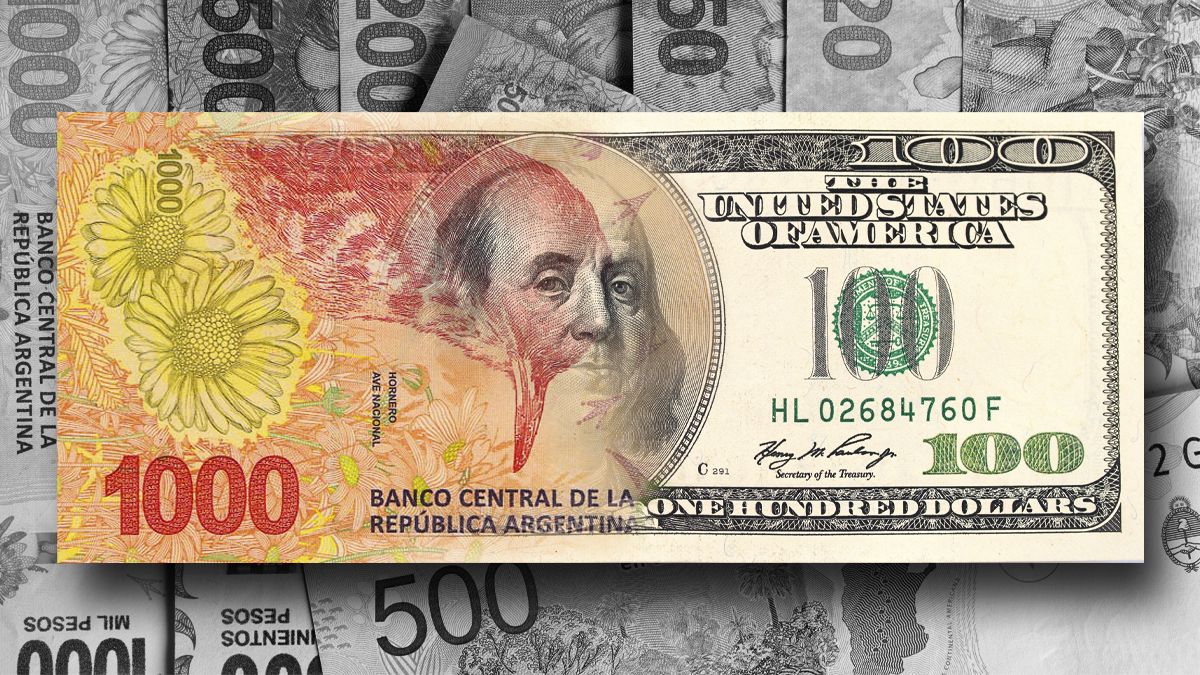The usual economic instability in Argentina and the inflationary problem mean that, from time to time, the discussion about the possibility of dollarize the Argentine economy It is an issue that settles in the center of public opinion. Several economic references talk about this issue that the candidate for president of La Libertad Avanza, Javier Milei, put on the agenda. The majority rejects the proposal, mainly because of the effects that a process of this type could have on wages and the purchasing power of Argentines.
It happens that, as explained by the economist and researcher at the University of Buenos Aires (UBA) Ricardo Aronskind, “establishing a dollarization at a time like the present would imply a brutal fiscal and monetary contraction, to convert the entire monetary base into dollars and that would lead to the collapse of consumption and investment, and a dramatic drop in economic activity”. Under these conditions, logically, salaries would pulverize and would be equivalent to very few dollars, contrary to the fantasy that many people have.
This is because the economist Christian Buteler points out that “everything depends on the price at which dollarization is made.” Because dollarizing at $300 or $400 is not the same as at $1,000 or $2,000, clearly. “If you dollarize to a very high value in pesos, there will quickly be social pressures to update salaries because they would be very low,” he says.
Dollarizing requires more reserves in the BCRA
In the same sense, the economist of Grupo Broda Elena Alonso maintains that “dollarization is a long shot possibility for our country right now because, first, we should get the Bookings enough to support that process.
He considers that, if it is done under these conditions, Argentina would be greatly impoverished compared to other countries and wages would remain at very low levels today, due to the scant amount of dollars that the Central Bank (BCRA) has today in relation to the pesos in circulation to support dollarization.
“That would make salaries so low compared to other countries that it would make many people go to live abroad. In addition, regarding the purchasing power of people, it would be necessary to see what prices are set for the goods and goods so that they are accessible to wage earners”, details Alonso.
Take into account the evolution of salary, key
But, on the other hand, Buteler indicates that salary is a price of the economy that evolves and considers. “You can measure the effect on starting salary, but you also have to consider development. What about wages in a dollarized economy? And, in this case, we have the example of Ecuador, where wages have been growing, far from being stagnant, due to the evolution of US inflation and the Ecuadorian economy”, he details.
However, analysts agree that, currently, at least, thinking about a dollarization of the economy would be unfeasible in Argentina because, as indicated by the economist Juan Valerdi, “at this moment, the relationship of prices and wages is the most damaging for Argentines in decades.”
Explain that the dollarization is a crystallization of the current relative prices of the economy, which include that of work in relation to goods and services”. And, considering the situation of the BCRA reserves and of the Argentine economy at this time, in the dollarization process wages would further deteriorate, for which he warns that “it would be very difficult for the country’s administration to be viable with a dollarized economy under these conditions.”
Source: Ambito
I am a 24-year-old writer and journalist who has been working in the news industry for the past two years. I write primarily about market news, so if you’re looking for insights into what’s going on in the stock market or economic indicators, you’ve come to the right place. I also dabble in writing articles on lifestyle trends and pop culture news.




